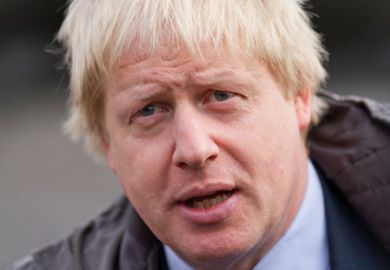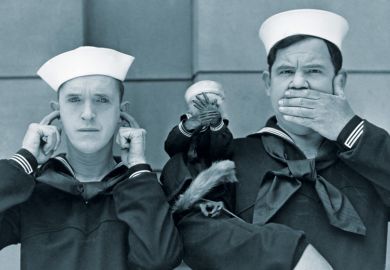In his exuberant history The Dream of Rome, Boris Johnson reveals something of his own early schooling.
“Between the ages of eight and eleven I was educated at a marvellous place in Brussels called the European School. It is one of the few schools in the world that is avowedly political, rather than religious, in its core dogma.
“It has a message for its pupils. Somewhere in the grounds is a plaque bearing the words of Jean Monnet, founder of the European Community, in which he speaks of his hopes for the little children who gambol around, screaming and yelling in the umpteen official languages of the EU. ‘May they become in mind European,’ he says, and drones on about how he hopes they will come out of the school resolved to build a common European fatherland.”
He goes on to thoroughly diss the whole concept of this integrated attempt at learning, suggesting that the school encouraged cliques and ghettos. That integration was in fact a myth and that there existed “a firm principle of apartheid”. It’s a damning critique.
I was part of a similar experiment, attending the European School in Culham, a few miles south of Oxford, only a few years after Boris had left Brussels. I was Oxfordshire born and bred, and this was my local school.
Perhaps it was that which made my experience so very different. I was firmly in the English section, but my friends came from all over. It was good to have them on my turf. I was convinced that the future was federal.
What I loved, but rather took for granted, during those teenage years was that many of my seminal experiences were being mediated through so many prisms beyond my own. I began to see what the fields, towns, transport networks and seasonal rhythms that I’d grown up with, looked, smelled and felt like to my French, Dutch, German, Italian and Danish friends.
I saw more of my country this way than I ever could have done had I stayed in the English system.
I became prouder of our British traditions, eccentricities and ways. More acutely aware of where we, as a nation, might want to change, where our actions or approaches appeared mean, thoughtless or inhibited to our neighbours. Nationality became a personal project. One on which I regularly exchanged notes with my European mates.
We played together, worked together and, through a continually creative process, improvised translation strategies to get by, laughing a lot as we solved problems both academic and social. Twice a week the English kids were exposed to history and geography in a second language. Hell at first, but you learned quickly to work with peers to get by. Racism was impossible in this environment. We needed each other to survive. Where common agreements couldn’t be reached across the language sections, decisions were left hanging – thus no uniform, no school bells, quite a lot of drifting in and out of lessons.
If all this sounds a little hippyish and utopian, it was mitigated by long days starting at 8.20am and going on most evenings until 5pm and the threat that if you failed three of the 12 subjects taken each year you’d have to repeat the whole lot. This happened semi-regularly.
There was a bit of a sink-or-swim mentality, but I think in the main the system honoured and respected us. We understood the need to take personal responsibility for our learning, while looking out for any mates who were struggling. It was an emphatic and generous community. Most of the decisions I’ve taken as an educator over the past 20 years have, in hindsight, been with a view towards nudging students and institutions towards the values that being in a European School taught me.
There are huge lessons for any institution looking to encourage students from different linguistic backgrounds, faiths, heritages or cultures to look beyond their own backyard and find a true place in the world.
One balmy summer evening, my European friends and I were doing what we tended to do most weekends, lounging on the lawn outside the Radcliffe Camera, swigging cheap cider and dreaming in our many different languages of the world to come, when a gang of drunken undergraduates wearing dinner jackets and clutching champagne bottles came roaring, collars up, into the square. I caught sight of them peripherally, sensed the danger and so instinctively sat up ready to challenge; but they were moving fast and before I knew it, I’d received a smart kick round the face, cracking my jaw.
I’ve often speculated in the 30 years since this incident took place whether it was Bojo who left me unable to speak for a couple of weeks. Bojo the casual historian happy to write: “I think it would be a rather wonderful thing if the peoples of Europe did indeed share the same mind and will. Believe me, they do not, nor are they likely to do so in my lifetime or yours.”
It’s only a sense of poetry that gives me licence to think that it was him, but last Thursday as the referendum results came in, my mind went back and a clear image reappeared of my EuroKid friends gasping in shock and amazement as my assailant and his chums laughed before lurching away without direction or purpose into the night.
Mark Griffin is deputy head of the School of Arts and Humanities at St Mary’s University, Twickenham.
Register to continue
Why register?
- Registration is free and only takes a moment
- Once registered, you can read 3 articles a month
- Sign up for our newsletter
Subscribe
Or subscribe for unlimited access to:
- Unlimited access to news, views, insights & reviews
- Digital editions
- Digital access to THE’s university and college rankings analysis
Already registered or a current subscriber?






